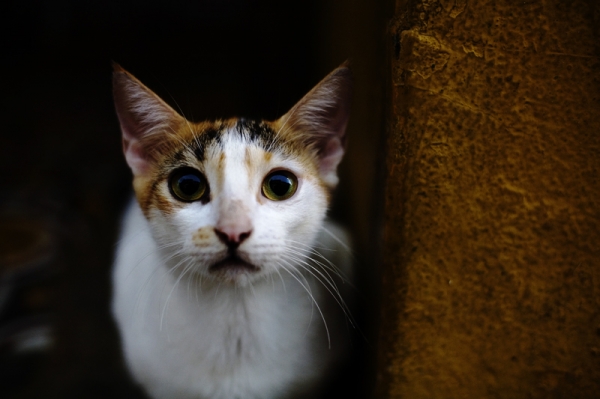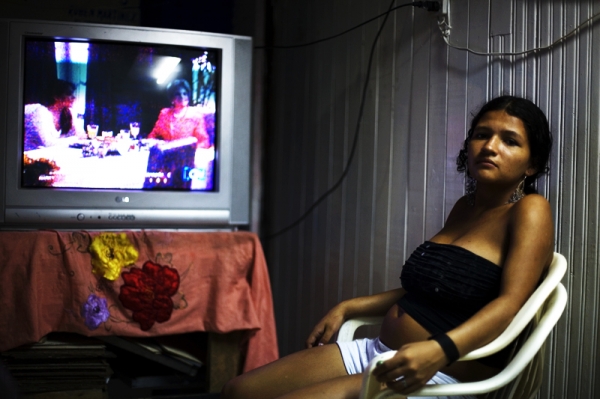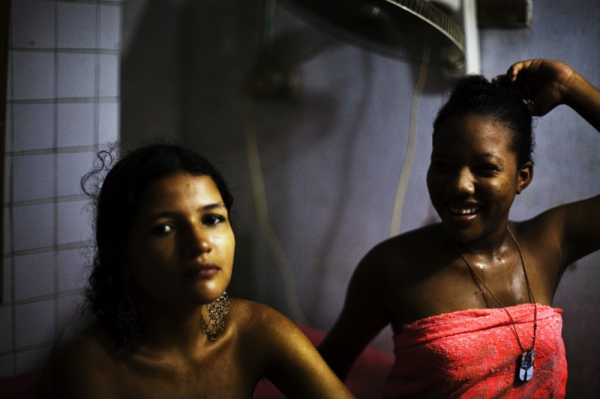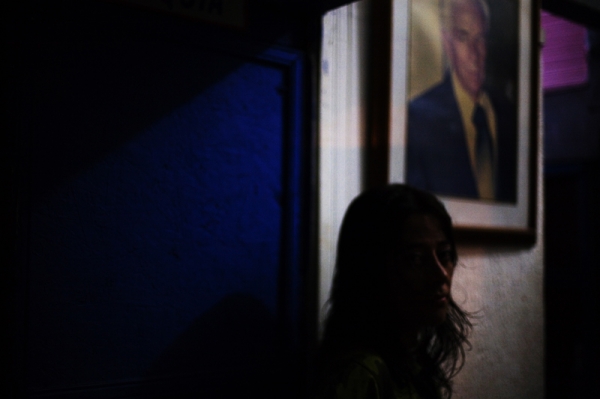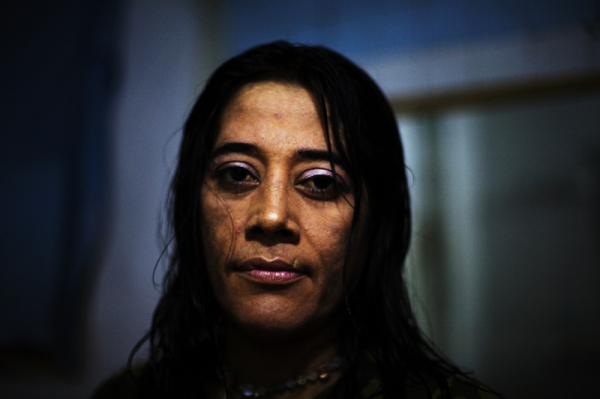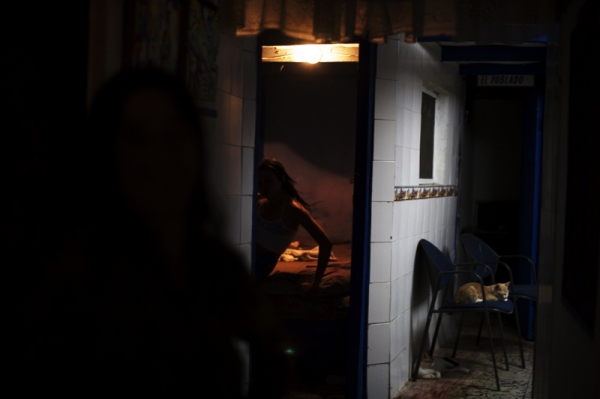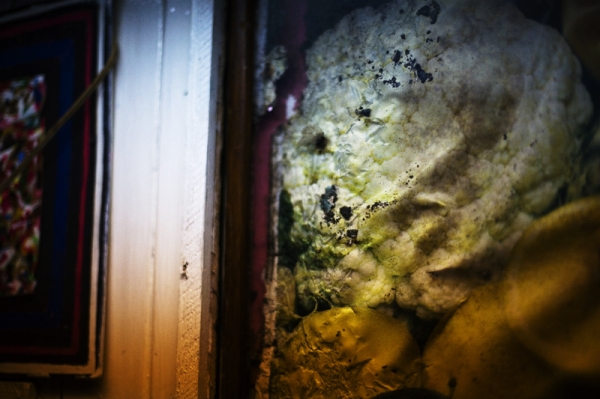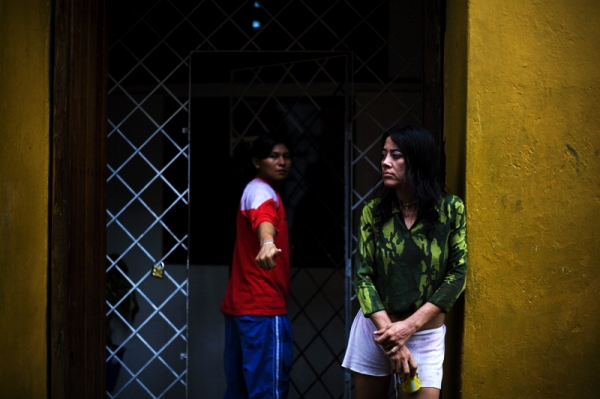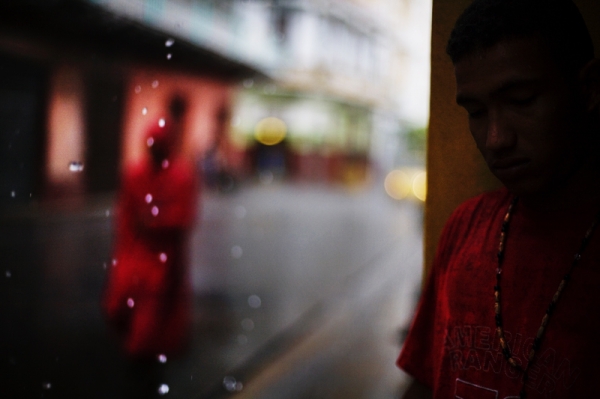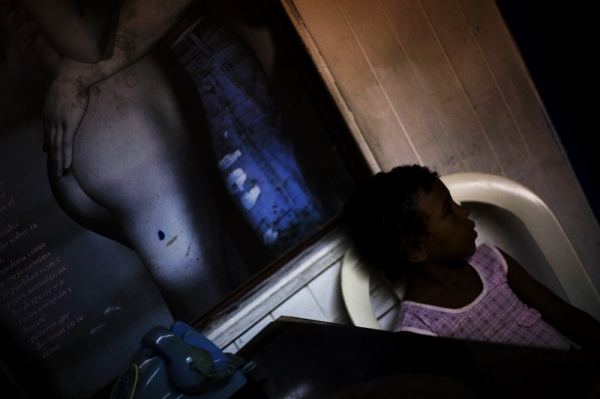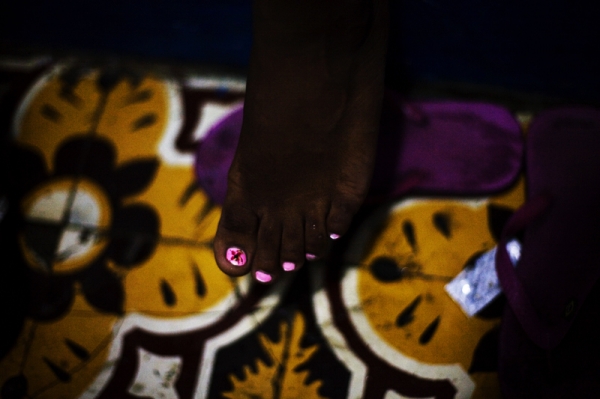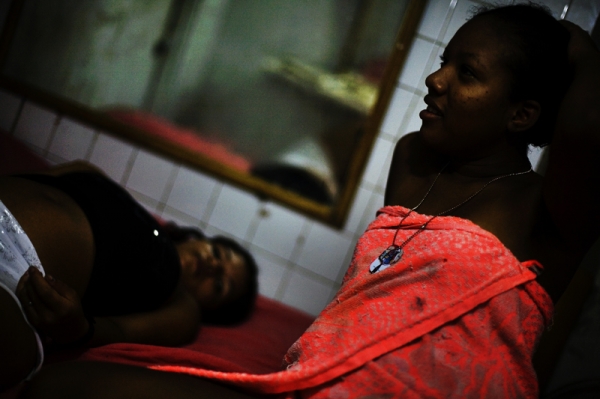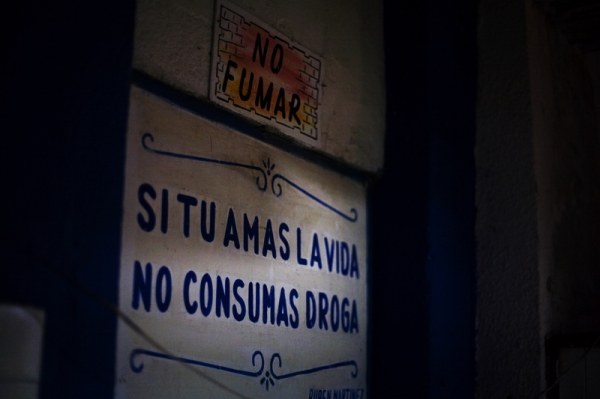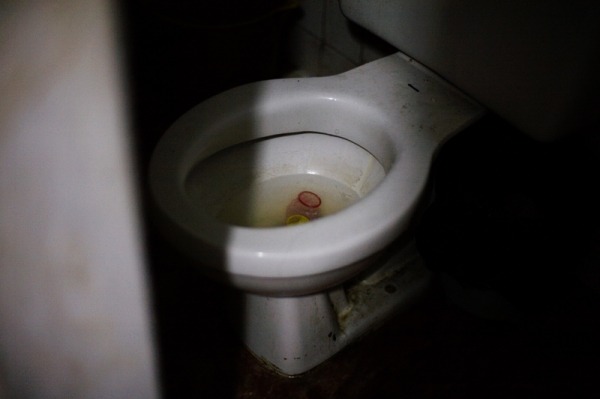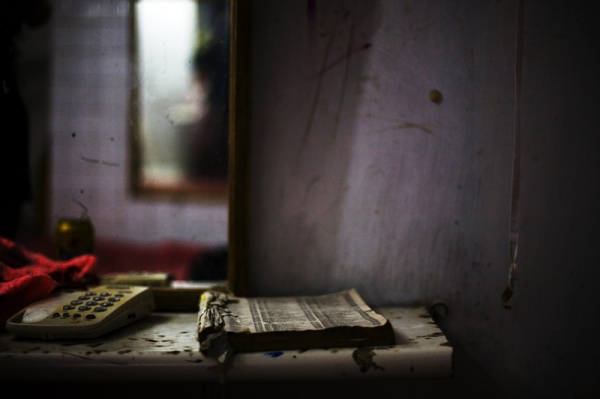Colombia
The sky bellows and below people, colourful and lightly clothed, scuttle under shop canopies seeking shelter from a swift but heavy downpour. Only a few minutes earlier had the radiating heat from the sun been replaced by angry rumbles in a volatile sky. An artist’s impression of the fearsome beast would have found charcoal black used in greater proportions to depict the darkness and tone of the heavy blanket above.
Down alleyways, across flooded roads and into a more dilapidated, yet vibrant residential district - buildings housing families, individuals, pensioners, maybe budgies, small mongrels, even pedigree dogs living, scraping to get by. Old wooden doors cling by a fingernail to old rusting hinges. Inside one ground floor a man runs cloth through a sewing machine continuing a family tradition from generations past.
The driving rain ceases for a brief gasp and again people appear, hop, skip and jump at different paces in their separate directions. Some, neglecting a future commitment or lacking any at all, step out from door wells to stand and observe. They might resume conversations with others previously separated by the downpour to different nooks and crannies that offered shelter. Today perhaps, like many other days, they have time to be leisurely, to obliviously enjoy their environment and local community. In this district there are no driveways or fences or private property signs. People’s lives coexist in private and amongst the community; communal urban living without the distraction of riches.
Down another cobbled road flanked on either side by solid buildings, standing defying the modern world’s desire to tear them down and replace them with new; relics of Colombia’s colonial past. The paint-coated plaster crumbles from portions of their exterior while inside is decorated with valueless objects that mean something only to the owner, providing a sense of existence and an association with home. Objects complimenting their surroundings, Objects that don’t come and go with new fads but have attachments to memories left at the back of their owner’s mind. They remain neat and unmoved as the dust collects. Objects whose greatest value is that which provides their owner a sense of comfort of being home.
Standing at the porch of one tenement are two people, with little more than a towel each to save them from being naked on the street. Rain drops splutter from above or dangle and drip from rooftop girders and drainpipes. Swells of water swirl at curbs and sheet the street while the couple prop themselves on either side of the hallway entrance, taking advantage of the lighter, cooler air that has come with the darkening clouds. It seems to be neither a bad day nor a good day for either of them. It’s just another indolent day during rainy season.
They take life and work at a leisurely pace. Neither of them having to care about business at the minute, but no doubt expecting to work at some stage during the day and into the night. The man’s short yet stubby body poses dominantly beside hers. She stares into space, her expression blank, as though she has been robbed of feeling. Yet she still feels. Past experiences stole her from her youth and future experiences will continue to erode. Her mind has evolved to deal with her conditions by numbing the pain of reality. She might not react if the world were to collapse on itself. She might even feel relieved to be swallowed and to disappear. He is more alert and interested in passers-by and changes in weather. He is less contemplative, more concerned with now and later business.
Behind them an open grilled metal door and then through the solid wooden door that stands ajar casting a dark shadow within, leads into their tenement, dwelling, guestrooms and home. A wooden ladder attached to the wall climbs to a loft made private by a large drape hung from the ceiling. Like most businesses and living quarter, their home lies above the rooms used for working. These small spaces contain the bare essentials, most importantly a bed and toilet ensuite. Nothing hangs on the pale toned walls of the cubic rooms, rooms and walls that seem rarely, if ever, cleaned. It is here that they work. Where they meet old regulars and greet newcomers. Where they reveal themselves and hide their souls.
Towards the back of the building is the sitting-room, a communal space for visitors and residents. A large TV occupies a corner of the room, flashing scenes and images of a different reality. It is a large perk of the job and a symbol of the benefits. It is a box advertising a material life and taking the workers out of their reality. It portrays lives of people that they will never become, lives that perhaps some of their clientele have the luxury to live, lives that live oblivious and unconcerned. They all co-exist under the same thunder storms.
How do some find themselves born to this destiny? A young teenager, or even an unborn child, trapped with their parent in this world; whose parents had been falsely lured at some vulnerable stage of their lives. Initially money had made it seem bearable and then almost enjoyable as they developed a dependency on their new lifestyle. Not that it made them anyway richer than before, but how were they to know or the people who let them go? As life passes they grow older, becoming less delicate and appealing, yet more entrapped. Gradually they’ve been corroded, maybe unnoticed at first, to discover themselves caught in a life of utter despair.
